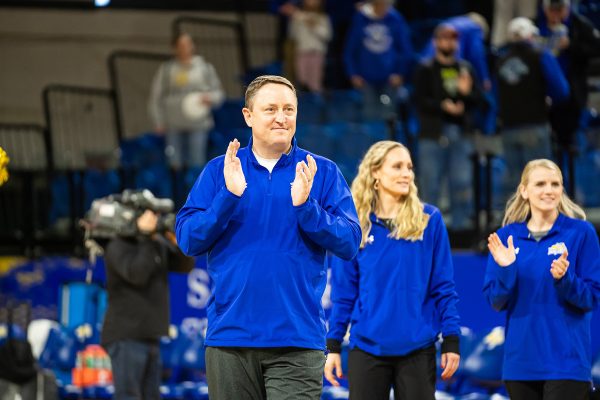New certificate enhances learning experience in liberal arts
October 21, 2015
How are teaching and learning in higher education and coaching competitive girl’s fast-pitch softball related? As a student and a practitioner of both, I can assure you that there is a remarkable similarity.
As a coach, I found that there are several predictable steps in teaching young athletes to master the physical and mental challenges of the game. The first involves teaching the players the physical skills needed to compete – throwing, catching, hitting, running, etc. Drills and practice help these young players learn these fundamentals.
Interestingly, although athletes may learn the proper skill and use it perfectly in a drill during practice, when they are in an actual game, they often revert to bad habits. Eventually, the athlete learns to perform the mechanical skill while under the considerable distress and
pressure of a championship game.
This process, the transfer of learning, is at the center of a revolution in how we think about teaching and learning within higher education in general and the liberal arts and sciences in particular. Knowing and understanding things are simply not enough; students must be able to apply the skill when needed.
Under the old educational model, knowledge was power. Teaching in higher education was based on the belief that learning was achieved by filling the students, as if they were empty vessels, with enough knowledge to prepare them for an ever-changing world. Throughout their lives, these students were to add knowledge as needed – to continue to fill the cup as it were – for personal and professional success.
The computer revolution, the digital age and the demands of the modern workforce have challenged these beliefs and assumptions. Now, too much information for students to hold at one time is available with the simple click of a mouse. That enormous body of knowledge produced over the millennia is accessible in digital formats from a variety of sources.
Today, employers demand a workforce with individuals who possess but can also apply knowledge, skills and competencies. The ability to search out information and use it in solving problems has become the new model of teaching and learning, driving higher education.
The faculty in the College of Arts and Sciences has embraced this new model of teaching and learning. We are creating a distinctive model for higher education to provide our students with the best possible academic experience in and out of the classroom.
When you look into the Certificate in EXPL, you find that teaching and learning can no longer be conducted just within the narrow boundaries of the traditional classroom. Teaching and learning in the liberal arts can no longer afford to deliver knowledge and skills that have not been tempered through hands-on experience.
I hope you will join us in the excitement that this innovative approach to a liberal arts education has for placing you, our students, at the front of the pack of new graduates seeking employment.
We will be reaching out and building partnerships with all sorts of agencies, businesses and communities as we engage our faculty and students in experiential learning opportunities.
Examples of experiential learning opportunities are:
· Service Learning, where students work in organized community partnerships that address local needs by applying what they have learned,
· Applied Learning,that involves the application of academic information through course projects in partnership with businesses, agencies and organizations,
· Field-Based Learning,
where students’ work experiences with businesses and organizations require the application of academic knowledge as well as the opportunity to develop new skills that are unique to the workplace,
· Integrative Learning,
that requires students to put knowledge together from multiple sources and develop habits of the mind that allow them to make informed judgments in all phases of their lives,
· Scholarly Activity,
that is designed to develop and sharpen intellectual and creative skills and
· Travel Studies/Study Abroad, that increases students’ understanding and appreciation of cultural diversity and globalization by recognizing our social, economic, geographic and intellectual interdependencies.
I hope that you will seriously consider whether the Certificate in EXPL is right for you. Dr. Kathy Erdman-Becker is the Coordinator of the Certificate in EXPL, and all the information you need to get started can be found at:
http://www.sdstate.edu/as/experiential-learning/index.cfm
Dennis Papini is the Dean of the College of Arts and Sciences and can be reached at [email protected]
























